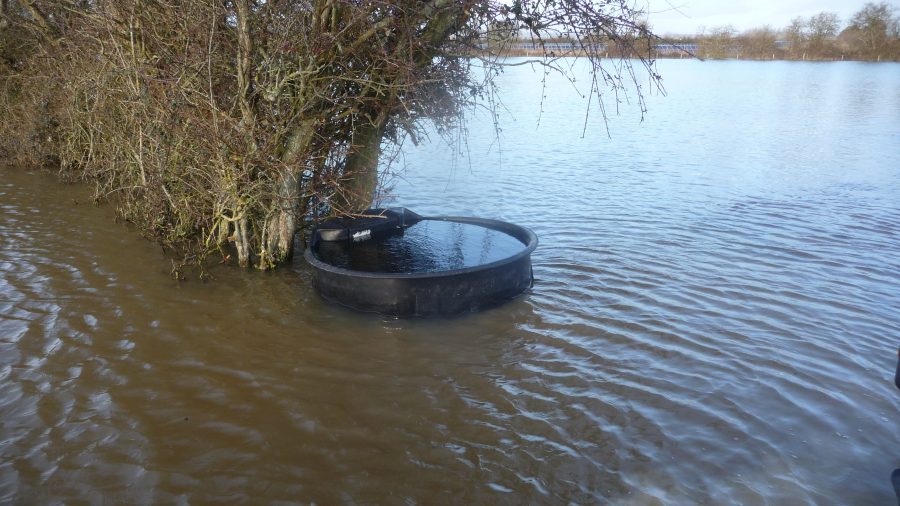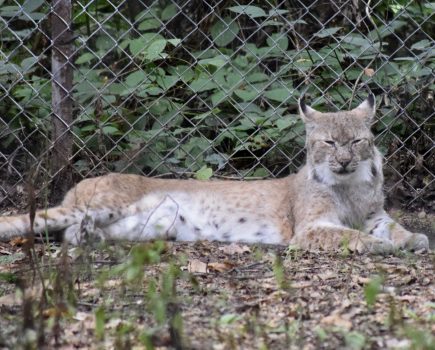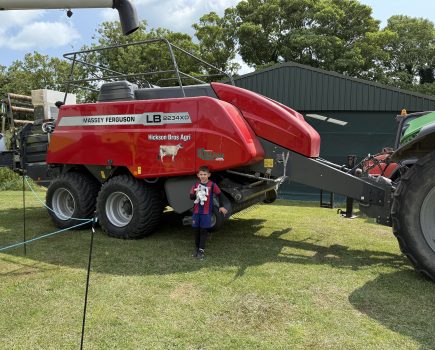The farming clock moves on. And what do our prospects look like? To those of my generation they are not very encouraging. With the days starting to lengthen it’s the time of year we should all be looking on the bright side, but that’s currently quite difficult.
Everywhere one looks, in the papers, on TV, and particularly on the increasingly lamentable BBC, omens are concerning. Activists across the country are still trying to bring us all to a halt. Hospital staff have been disgracing their profession by causing walk outs and stoppages. Some essentials are becoming increasingly hard to find. Environmental disciples are doing their best to demonise petrol and diesel car drivers.
For farming, fertiliser prices appear to have stabilised, if you can get the stuff, but are about four times what they were pre-2021, and it is difficult to see them returning to sensible levels soon without an end to Putin and his Ukrainian war.
Last year the price of cereals adjusted to these; milk and fodder crops too. But for how long? I don’t know about fruit but, from availability and eating quality in a wonderful summer they did seem to have had a very good 2022. Their main problem, along with vineyards, appears to be a lack of good pickers from the EU because, unfortunately, modern Britons don’t want too much physical work.
But where are the longer-term positives? After a desperately dry spring/summer in 2022 we have at least started the new one with ditches and ponds full again, and the autumn-sown crops generally look wonderful.
You really can’t win over soil moisture. If your waterways are running effectively the soil water level is lower and you avoid much serious flooding, but if winter is followed by a spring like last year, we quickly run into a big moisture deficit which disrupts good establishment of spring crops, certainly on non-irrigated land.
Alternatively, with the waterways neglected as they are today, primarily for the excuse of protecting ‘water rats’ and crested newts, the whole system breaks down. Most of us have seen the results over recent years, and it is very frustrating. As I’ve said before, it is amazing to think how all those creatures managed to thrive in the days when the rivers and waterways were kept clear.
I imagine we are not alone, but my office has been pestered by very persistent ‘scam’ calls of late; many from voices purporting to be from the bank’s ‘fraud office’ reporting that someone is trying to take some money from our account.
Their manner immediately makes us suspicious, so we hang up, having told them in the strongest terms that we know their game. We use ‘callback’ to get their number, which never ties up with what they are saying.
I’m sure many of you get the same intrusive calls. Just report them to your bank but never give the caller a scrap of information, however genuine they may seem to you. It could cost you dearly. It would be very useful to have a number to call, but whose? The Police no longer have any interest in any but the most serious crimes and even then they don’t do too well! So, if you don’t know the caller don’t trust what they say. Just put the phone down.
Back to the farms. The vineyard, now approaching its fourth year from first planting, is looking good. I am not involved with it, having leased the land, but it is starting to look impressive. Our only real input has been that Emma worked for them last spring to autumn, some three days a week, mainly grass cutting and spraying, due to the shortage of European labour.
The project looks attractive but there is so much involved, like dealing with spring frosts, summer mildew, finding the pickers and then making good wine that will ring bells and sell. The establishment costs are huge. The vineyard is set up now with its own winery, press and storage and we hope it all goes well.
For interest only, as I’m warned off saying nasty things about the EA, or I will be in the ‘dog house’. That is, of course, before anyone complains about me saying anything derogatory about dogs…
My immediate neighbours have around 40 acres of brookland where they used to run cattle, for which it was perfect. The cattle are now long gone, since when it has been used for cereals.
In the past 20-plus years, despite earlier huge investment in draining it, they have not managed to get one good harvest off this land. Some years, maybe 10 acres was flooded out, and this has become progressively worse to the point where they don’t plant anything there because it is a total waste of time and money.
On investigating they found the outfall pipes from their drainage scheme, which were set some 18 inches above the channel’s bottom, were now some 30 inches below the silt in the main waterways. Now I think I had better change the subject before I get my knuckles rapped.
On similar tack I’m sure many people will have noticed the explosion in house building on what is often quite marginally flood plain. Locally we have an old area known as the Five Villages. Old, distinct, largely self-contained villages.
Yet due to weak planning committees, influenced by bad planning laws and who knows what else, the area has become one sprawling town, such is the development not only on small green spaces but on ‘grade one’ land. Yet there is hardly any new infrastructure to support this explosion.







